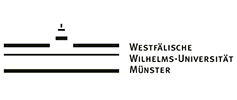Election Design Following Constitutional Court Decision Number 14/PUU-XI/2013
DOI:
https://doi.org/10.31078/consrev223Keywords:
General Elections, Constitutional CourtAbstract
The major implication from Constitutional Court Decision No. 14/PUU-XI/2013 is that the Constitution promotes fundamental changes to the design of the general election regarding both process and substance. Therefore, in order to uphold the Constitution, efforts are required to reconstruct the design of the general election, particularly so that elections are conducted in accordance with Decision No. 14/PUU-XI/2013 as a representation of the spirit and the will of the 1945 Constitution. Essentially, the current norm regarding the implementation of general elections following the election of members of the representative institution is not consistent with the stipulations in Article 22E Paragraph (1) and Paragraph (2) and Article 1 Paragraph (2) of the 1945 Constitution. Constitutional Court Decision No. 14/PUU-XI/2013 aims to realign the implementation of the elections with the intentions of the 1945 Constitution. Through implementation of the original intent method and systematic interpretation, the Constitutional Court offered its interpretation that the framers of the amended Constitution intended that general elections have five ballot boxes, with the first for the People’s Representative Council (Dewan Perwakilan Rakyat, DPR), the second for the Regional Representative Council (Dewan Perwakilan Daerah, DPD), the third for the president and vice president, the fourth for the Regional People’s Representative Council (Dewan Perwakilan Rakyat Daerah, DPRD) at the provincial level and the fifth for the DPRD at the regency level. Thus, it can be concluded that the presidential elections should be conducted simultaneously with elections of members of the representative bodies. Through this decision, the Constitutional Court revoked the prevailing norm, such that Presidential Elections and Elections of members of representative bodies were no longer valid because they violated the 1945 Constitution. The Constitutional Court introduced a new legal condition that obligated General Elections to be held simultaneously.References
Books and Articles
Affan Ghaffar, Politik Transisi Menuju Demokrasi, Yogyakarta: Pustaka Pelajar, 2005.
Arend Lijphart, Electoral System and Party Systems: A Study Tweenty-Seven Democracies 1945-1990, New York: Oxford UP, 1995.
Daniel S. Lev, Hukum dan Politik di Indonesia, Kesinambungan dan Perubahan, Cet. I, Jakarta: LP3S, 1990.
Dede Rosyada, dkk, Pendidikan Kewargaan (Civic Education): Demokrasi, Hak Asasi Manusia, dan masyarakat Madani, Jakarta: Prenada Media, 2003.
Doel, J, van den, alih Bahasa R.L.L Tobing, Demokrasi dan Teori Kemakmuran, Jakarta: Gelora Aksara Pratama, 1998.
Jayanti Puspaningrum, Tinjauan Teoritis Sistem Pemilu (Memotret Sistem Pemilu 2009), dalam Jurnal Konstitusi Vol. II 1 Juni 2009.
Jimly Asshiddiqie, Pengantar Ilmu Hukum Tata Negara Jilid 2, Jakarta: Sekretariat Jenderal dan Kepaniteraan Mahkamah Konstitusi, 2006.
Jimly Asshidiqie, Pokok-Pokok Hukum Tata Negara Indonesia, Jakarta: Bhuana Ilmu Populer, 2007.
Konrad Zweigert dan Hein Kotz, An Introduction to Comparative Law (Third Edition), New York: Oxford University Press, 1998.
Lyman Tower Sargent, Contemporary Political Ideologies, alih bahasa Sahat Simamora, Ideologi Politik Kontemporer, Jakarta: PT. Bina Aksara, 1986.
Mauvty Makaarim al-Akhlaq, Makalah Relasi Politik dan Hukum di Indonesia dalam Merdi Hajiji, Relasi Hukum dan Politik dalam Sistem Hukum Indoneia, Jurnal RechtsVinding, Vol. 2 Nomor 3, Desember 2013.
Miriam Budiardjo, Dasar-Dasar Ilmu Politik (Edisi Pertama), Jakarta: PT. Gramedia Pustaka Utama, 2008.
Otje Salman, Teori Hukum Mengingat Mengumpulkan dan Membuka Kembali, Bandung: PT Refika Aditaman, 2014.
Peter de Cruz, A Modern Approach to Comparative Law, Deventer-Boston: Kluwer, 1993.
Ramlan Subakti, Memahami Ilmu Politik, Grasindo, Jakarta, 1992.
Ronald Dworkin, Legal Research, Daedalus: Spring, 1973.
Ruslan Abdulgani, Beberapa Catatan tentang Pengamalan Pancasila dengan Penekanan kepada Tinjauan Sila ke-4 yaitu Demokrasi Pancasila, dalam Demokrasi Indonesia Tinjauan Politik, Sejarah, Ekonomi-Koperasi dan Kebudayaan, Yogkarta: Yayasan Widya Patria, 1995.
Sigit Pamungkas, Perihal Pemilu,Yogyakarta: JIP.UGM, 2009.
Soerjono Soekanto dan Sri Mamudji, Penelitian Hukum Normatif: Suatu Tinjauan Singkat, Jakarta: CV. Rajawali, 1985.
Sukarna, Sistem Politik, Bandung:PT Citra Aditya Bakti, 1990.
Trubus Rahardiansah P, Pengantar Ilmu Politik, Paradigma, Konsep Dasar, dan Relevansinya untuk Ilmu Hukum, Jakarta: Penerbit Universitas Trisakti, 2008.
Affan Ghaffar, Politik Transisi Menuju Demokrasi, Yogyakarta: Pustaka Pelajar, 2005.
Arend Lijphart, Electoral System and Party Systems: A Study Tweenty-Seven Democracies 1945-1990, New York: Oxford UP, 1995.
Daniel S. Lev, Hukum dan Politik di Indonesia, Kesinambungan dan Perubahan, Cet. I, Jakarta: LP3S, 1990.
Dede Rosyada, dkk, Pendidikan Kewargaan (Civic Education): Demokrasi, Hak Asasi Manusia, dan masyarakat Madani, Jakarta: Prenada Media, 2003.
Doel, J, van den, alih Bahasa R.L.L Tobing, Demokrasi dan Teori Kemakmuran, Jakarta: Gelora Aksara Pratama, 1998.
Jayanti Puspaningrum, Tinjauan Teoritis Sistem Pemilu (Memotret Sistem Pemilu 2009), dalam Jurnal Konstitusi Vol. II 1 Juni 2009.
Jimly Asshiddiqie, Pengantar Ilmu Hukum Tata Negara Jilid 2, Jakarta: Sekretariat Jenderal dan Kepaniteraan Mahkamah Konstitusi, 2006.
Jimly Asshidiqie, Pokok-Pokok Hukum Tata Negara Indonesia, Jakarta: Bhuana Ilmu Populer, 2007.
Konrad Zweigert dan Hein Kotz, An Introduction to Comparative Law (Third Edition), New York: Oxford University Press, 1998.
Lyman Tower Sargent, Contemporary Political Ideologies, alih bahasa Sahat Simamora, Ideologi Politik Kontemporer, Jakarta: PT. Bina Aksara, 1986.
Mauvty Makaarim al-Akhlaq, Makalah Relasi Politik dan Hukum di Indonesia dalam Merdi Hajiji, Relasi Hukum dan Politik dalam Sistem Hukum Indoneia, Jurnal RechtsVinding, Vol. 2 Nomor 3, Desember 2013.
Miriam Budiardjo, Dasar-Dasar Ilmu Politik (Edisi Pertama), Jakarta: PT. Gramedia Pustaka Utama, 2008.
Otje Salman, Teori Hukum Mengingat Mengumpulkan dan Membuka Kembali, Bandung: PT Refika Aditaman, 2014.
Peter de Cruz, A Modern Approach to Comparative Law, Deventer-Boston: Kluwer, 1993.
Ramlan Subakti, Memahami Ilmu Politik, Grasindo, Jakarta, 1992.
Ronald Dworkin, Legal Research, Daedalus: Spring, 1973.
Ruslan Abdulgani, Beberapa Catatan tentang Pengamalan Pancasila dengan Penekanan kepada Tinjauan Sila ke-4 yaitu Demokrasi Pancasila, dalam Demokrasi Indonesia Tinjauan Politik, Sejarah, Ekonomi-Koperasi dan Kebudayaan, Yogkarta: Yayasan Widya Patria, 1995.
Sigit Pamungkas, Perihal Pemilu,Yogyakarta: JIP.UGM, 2009.
Soerjono Soekanto dan Sri Mamudji, Penelitian Hukum Normatif: Suatu Tinjauan Singkat, Jakarta: CV. Rajawali, 1985.
Sukarna, Sistem Politik, Bandung:PT Citra Aditya Bakti, 1990.
Trubus Rahardiansah P, Pengantar Ilmu Politik, Paradigma, Konsep Dasar, dan Relevansinya untuk Ilmu Hukum, Jakarta: Penerbit Universitas Trisakti, 2008.
Downloads
Published
2017-02-06
How to Cite
Laksono, F., & Agustine, O. V. (2017). Election Design Following Constitutional Court Decision Number 14/PUU-XI/2013. Constitutional Review, 2(2), 216–233. https://doi.org/10.31078/consrev223
Issue
Section
Articles
































































